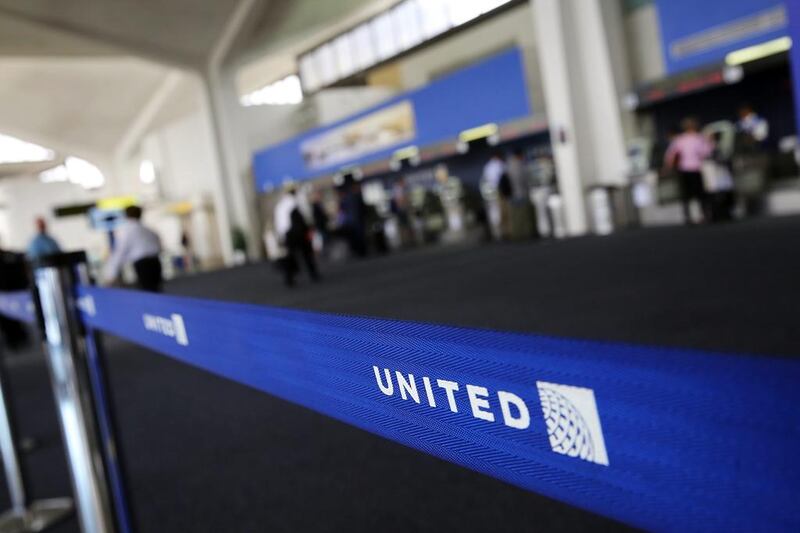It was an air disaster of a different kind.
The shocking video footage of a United Airlines passenger being dragged from a full aircraft at Chicago O’Hare Airport this week has left its “friendly skies” tag line in tatters.
Even before the 69-year-old Vietnamese-American doctor was pulled bloodied from the plane on Sunday, the US carrier had been lampooned over the quality of its service by bitter rival Emirates.
The Dubai-based carrier wasted little time in going for the jugular of its wounded rival as it released a promotional video encouraging passengers to fly the “friendly skies”.
__________
More PR disasters: Read the top 10 list
__________
It turned United’s long-standing catchline conceived by Leo Burnett and his team in 1965 against the carrier with comic but devastating effect.
The brutal video of the United incident was shared and viewed millions of times within hours of hitting social media, inspiring dozens of memes from the mischievous to the malicious.
Now one of the global aviation industry’s longest-standing advertising mottos has been critically damaged and the question for United is how to repair that damage, restore passenger confidence and effectively compete in an ongoing marketing scrap with its Dubai rival that appears to be landing more punches.
“The United brand won’t be flying the friendly skies for a long time,” said the digital marketing expert Naomh McElhatton. “How did the airline think that this type of behaviour would go unnoticed and not hit the social channels within seconds of the attack?”
United and Emirates are two of the main protagonists in a long-running feud between the Arabian Gulf carriers and their US rivals who accuse them of benefiting from billions of dollars in unfair state subsidies – a claim vociferously denied by Emirates, Qatar Airways and Etihad Airways.
While both sides have spent heavily on lobbying and advertising, Emirates has been more nimble at producing opportunistic tongue-in-cheek campaigns that are often shared on social media – such as its “Let us Entertain You” package produced in response to the introduction of a ban on laptops in the cabin on US-bound flights. Other regional carriers have followed its lead.
Royal Jordanian produced a humorous list of things passengers could do on a flight without their laptops to distract them – such as meditating, analysing the meaning of life and pretending the tray table is a keyboard.
And not to be outdone by its regional competitor, the Jordanian carrier also joined the online trolling of United after the footage of the forced removal of Dr David Dao from the plane started to circulate on social media.
“Dragging is strictly prohibited,” read a sign with an aircraft no smoking symbol.
But while the video of the incident provides rivals with plenty of material for jokes and jibes, there will be little to smile about at United’s headquarters.
“United Airlines have shot themselves in the heart rather than in the foot,” said Hasan Fadlallah, the chief executive of Brand Lounge. “They made the biggest branding mistake one could, which is acting against your own brand positioning. When you position yourself as the friendliest airline in the skies and don’t transcend this into your overall experience, this can be lethal – especially in our digital era where a response is expected immediately, as proven with the digital storm against them in the past days.”
The pubic relations response of the airline has also come under scrutiny after the chief executive Oscar Munoz on Monday described Dr Dao as “disruptive and belligerent” in an internal staff email. By Tuesday his public language softened significantly as he said: “No one should ever be mistreated this way.”
Andy Holdsworth, a London-based crisis management expert at Bell Pottinger, believes the real PR problem started before the plane was boarded because the airline missed an opportunity to persuade passengers to give up their seats on the full flight without confrontation. He also pointed to the language used by Mr Munoz in his communication with staff.
“I think a key lesson for United is to make sure their communications both internally and externally are consistent and considered,” Mr Holdsworth said. “When Oscar Munoz drafted his staff communication, did he consider the language he used and how that would be perceived and received externally by the general public?”
As United assesses the damage done to the company’s brand value it may get help from looking back at what inspired the original advertising “Mad Men” who conceived the friendly skies campaign in the 1960s.
In her book The Jet Sex, the historian Victoria Vantoch describes the original pitch.
“The ‘friendly skies’ campaign, said the agency’s proposal, was designed to import ‘warmth’,’ softness’ and ‘friendliness’ into United’s image. At the creative table, the ad team aimed to show as much smiling humanness as chrome-steel efficiency.”
Dr Dao may remember more of the chrome-steel efficiency of his removal from the aircraft.
United Airlines, meanwhile, will need to rediscover some of the “smiling humanness”.
scronin@thenational.ae
ascott@thenational.ae
Follow The National's Business section on Twitter





